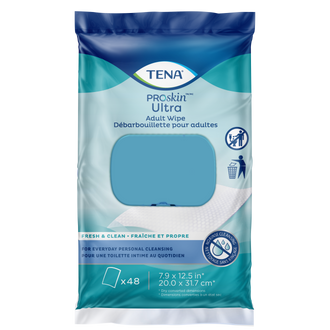Oct 25, 2024
Menopause is a natural part of life but knowing what to expect can make it easier to navigate. In this article, we’ll walk you through the journey of menopause, from the early days of perimenopause to postmenopause.
We’ll break down the common stages and symptoms and give you some tips on how to handle the changes your body is going through.
What Exactly Is Menopause?
Menopause marks the end of a woman’s menstrual cycles and is officially defined as having no period for 12 consecutive months.1 It’s a natural phase of aging that occurs when your ovaries stop making reproductive hormones.1 Menopause itself is a defined moment so you don’t stay in this stage like with other stages of menopause.1
Menopause doesn’t happen overnight; it unfolds in stages—perimenopause, menopause, and postmenopause.1 Understanding these stages can help you better navigate this significant transition in your life.
A Guide to the Three Stages of Menopause
Perimenopause, menopause, and postmenopause each bring their own changes and symptoms.1
Let’s break down what you can expect in each phase, so you’re ready for a deeper dive into the specifics later on.
What Age Does Perimenopause Typically Begin?
Before you experience menopause, you will go through a period of transition called perimenopause.2 Perimenopause usually kicks off when you’re in your mid-to-late 40s.2
You might even start to notice changes in your menstrual cycle, such as irregular periods, and start experiencing symptoms like hot flashes or mood swings.1 Don’t worry—these changes are a normal part of the aging process.
What Is the Average Age for Menopause?
Most women go through menopause around age 52.1 That said, the timing can vary, and some women might experience menopause a bit earlier or later. Looking at your family history can give you an idea of when you might expect to go through menopause.2
What Age Does the Postmenopause Stage Start?
Postmenopause starts right after menopause and lasts for the rest of your life.1
While the exact timing can vary for everyone, you’ll naturally move into this stage after menopause.1 In postmenopause, your hormones stabilize a bit more. However, you might still experience some lingering symptoms from the earlier stages.1
Navigating the Menopausal Transition
Menopause is a natural process that your body goes through,1 but with some practical changes and treatments, you can manage the transition more smoothly.
Diet and Nutrition
Tweaking your diet can sometimes help with menopause symptoms.1 For instance, cutting back on caffeine and spicy foods might make those hot flashes a bit less intense.1 Adding more foods that contain phytoestrogens like soybeans or chickpeas to your meals could also offer some relief from symptoms.1
Exercise
It can be tough to exercise with hot flashes, but staying active really helps with other menopause symptoms.1 You don’t need to do anything intense— gardening or swimming can work brilliantly. And if you’re into something more relaxing, yoga is perfect for boosting your mood and easing anxiety.1
If you’d like to learn more about exercise during menopause, you’re in the right place.
Treatments and Therapies
Hormone Replacement Therapy (HRT) can alleviate symptoms like hot flashes, but first discuss this medication with a doctor to make sure it is the best approach for you.3
Signs That You’re in Menopause
Recognizing the signs of menopause can help you understand what’s happening with your body. Here are the most common indicators that menopause has begun:
Incontinence
As menopause affects your hormone levels, you might notice changes in bladder control, such as increased frequency or urgency. If you’re experiencing this, TENA products can make a big difference.
Our range of incontinence solutions is designed to help you stay comfortable and confident. Find the product that works best for you.
Absence of Periods
The most definitive sign of menopause is when you’ve gone 12 months without a menstrual period.1
Hot Flashes
Hot flashes are sudden, intense feelings of warmth in your face and upper body discomfort.3 They’re one of the hallmark symptoms of menopause.3
Mood Changes
Fluctuating hormones may lead to irritability, anxiety, or even depression.1 Many women experience mood swings, irritability, or even depression during menopause.3
Weight Gain
Some women might notice weight gain during this period.1
Vaginal Dryness and Changes in Libido
A decrease in estrogen can lead to vaginal dryness, which may cause discomfort during sex.3 A decrease or increase in sexual desire is also common as hormone levels shift.1
Menopause is a gradual process, so you might not realize you’re in it until some of these symptoms become more pronounced. If you're dealing with any of these symptoms, it's important to speak with a doctor. They can help guide you through treatment options and symptom management strategies tailored to your needs.
How Long Does Menopause Last?
Menopause itself is just a moment in time—the point when you've gone 12 consecutive months without a period.1 However, some mild symptoms surrounding menopause, especially during perimenopause and postmenopause, can last for several years.1
Perimenopause, the phase leading up to menopause, can last anywhere from a few months to several years.1 After menopause, symptoms might continue into postmenopause, but they often ease with time.1 Each woman’s experience is different, so the length of these stages can vary widely.
References
1. Cleveland Clinic. ‘Menopause’. 2024. Accessed 18 September 2024. Available from: https://my.clevelandclinic.org/health/diseases/21841-menopause
2. Healthline. ‘What’s the Average Age of Menopause? Plus What to Expect When It Starts’. 2019. Accessed 19 September 2024. Available from: https://www.healthline.com/health/menopause/menopause-age
3. Healthline. ‘How Long Do Symptoms of Menopause Last?’. 2024. Accessed 11 September 2024. Available from: https://www.healthline.com/health/menopause/how-long-does-menopause-last
4. Cleveland Clinic. ‘Perimenopause’. 2024. Accessed 19 September 2024. Available from: https://my.clevelandclinic.org/health/diseases/21608-perimenopause







